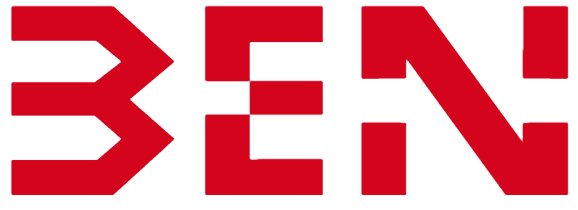I just published my new article on MoreThanDigital about a very important topic that many companies have been asking me about over the last few months, and even in Davos it was one of the main topics. – Adapting to AI and Building a Strategy in the AI Age
But here on my personal blog, I wanted to share some more personal thoughts on how artificial intelligence is not only reshaping industries, but how we are all falling for a big lie about AI supremacy and more. It’s going to change a lot, both personally and professionally – so don’t get me wrong, it’s a major shift in technology, but nothing that’s out of control. My job as a futurist is to always have a clear way of looking at current trends and predicting current and future impacts in various ways. So naturally, I’ve been following the AI revolution closely, and here’s my personal take on how we can navigate these transformative times.
Thoughts on the AI Transformation
Do you remember how to weave cloth by hand? – Probably not, and neither do most other people, who have no idea how to weave the fabric for a pair of pants. So automation and mechanization have always been a part of our society, and there will always be changes in work and life. And not so long ago, when we talked about automation, it was mostly about handling manual, repetitive tasks, such as in a manufacturing environment. Back then, it was a tool for blue-collar jobs in manufacturing and logistics. But now, with AI technologies like Generative AI and Large Language Models (LLMs), even white-collar work – think legal drafting, data analysis, creative writing – is getting a major productivity boost – which means jobs are being displaced and need to change. For many people, this shift is as exciting as it is daunting. They feel like they’re all on the brink of great change, and I’ve found myself in many conversations, from the lowest level to the highest, where people are both excited and cautious about what lies ahead – but as always, they’re caught between misperception and fear.
So what is changing at the moment? Why is everyone so afraid?
- Traditional Moats Are Crumbling: Long-standing competitive advantages such as proprietary technology and strong brand recognition are being challenged. AI is democratizing advanced capabilities, meaning smaller players can now compete with giants – a team of 10 can suddenly take on companies with thousands of employees. Even a 10-person startup can now be a unicorn, generating hundreds of millions in revenue.
- Legacy Systems Under Pressure: Many organizations, including those I’ve personally spoken with or even consulted with, struggle with legacy systems that can’t keep up with AI integration. For many, it’s a legacy they can’t easily shake, but it’s a reminder that clinging to old ways can be a liability.
- The Skills Gap: With AI automating tasks that once required specialized human expertise, there’s a growing need for continuous learning and upskilling. I’ve personally invested time in learning more about AI, and it’s clear that staying ahead means never stopping to learn.
- Market Dynamics and Customer Expectations: Rapid innovation and hyper-personalization are changing what customers expect. I see this as both a challenge and an opportunity—if we can adapt, we can thrive.
How I’m Building My Own Competitive Advantage?
Well – guess what people ask futurists the most – how can I lead and win in the future?
For me, the concept of a “moat” has evolved a lot and having a strong strategic position/advantage is getting harder and harder. But it goes both ways – it’s harder to build something new and exciting because there’s so much noise, AI has flooded the internet with noise, but at the same time it’s harder to be an incubator because the barriers to entry are disappearing at a rapid pace. It’s no longer just about having a unique technology or a trusted brand; it’s about creating layers of value that are hard to replicate. That’s what I’m focused on (the Full List is available in the MoreThanDigital Publication)
- Cultivating Unique Data: I believe that having access to proprietary data is like owning a secret ingredient. It powers smarter, more personalized AI applications.
- Investing in the Right Infrastructure: AI isn’t just software—it’s also about the physical resources, like high-powered computing and robust data centers. This is something I pay close attention to when assessing opportunities.
- Embracing Human Feedback: Integrating human insight with AI (what’s known as Reinforcement Learning with Human Feedback, or RLHF) is something I see as crucial. It makes AI smarter and more aligned with real-world needs.
- Staying Ahead of Regulations: Navigating the regulatory landscape can be tricky, but early compliance and understanding the rules can set you apart.
- Building Trust: In a world flooded with AI-generated content, I’ve found that maintaining transparency and ethical standards builds lasting trust—whether it’s with clients, partners, or my own network.
- Fostering Partnerships: I’ve seen how collaboration with diverse communities—tech developers, academic researchers, and industry peers—can spark innovation that you might never achieve alone.
- Creating High Switching Costs: When your systems are deeply integrated and offer unique value, it naturally makes it harder for others to replace you. That’s a strategy I believe in wholeheartedly.
My Strategic Recommendations
There is nothing revolutionary about AI when it comes to adoption. It’s another technology, another wave of hype, another cycle of change. So the good old playbook of digital transformation, change management, and preparing your organization still applies. It’s just that this technology is applicable in many different ways and forms, so it may be a bigger task, but its not new.
- Know Your Unique Strengths: Take a hard look at what makes you or your business unique. Invest in your proprietary data and partnerships that give you a competitive edge.
- Plan for the Long Run: AI isn’t a quick fix—it’s a fundamental shift. I recommend developing a detailed, long-term roadmap that includes milestones, risk assessments, and continuous learning strategies.
- Cultivate an Innovative Mindset: Encourage a culture where experimentation is welcomed, and ethical guidelines are taken seriously. This mindset can be a game-changer, both in personal projects and professional endeavors.
- Leverage Your Network: Don’t try to do everything alone. Build communities and seek out strategic partners who can offer fresh perspectives and resources.
- Stay Adaptable, Yet Consistent: While you need to be flexible and open to change, it’s equally important to remain anchored to your core values and long-term vision.
My Final Thoughts
AI is still in its early stages and despite some “LinkedIn Bubble” discussions, it is not as catastrophic as some influencers would have you believe/fear, but its impact is already profound and will continue to be so as AI is nothing more than how computers work and how they can be used to automate things. I always believe it is important to experiment and to be critical about your position, your unique strategy and your assets. So by preparing your organization for constant change, embracing that change with experimentation and openness, and proactively building a personal and professional moat, we can not only secure our positions, but lead the charge into a future full of opportunity.

